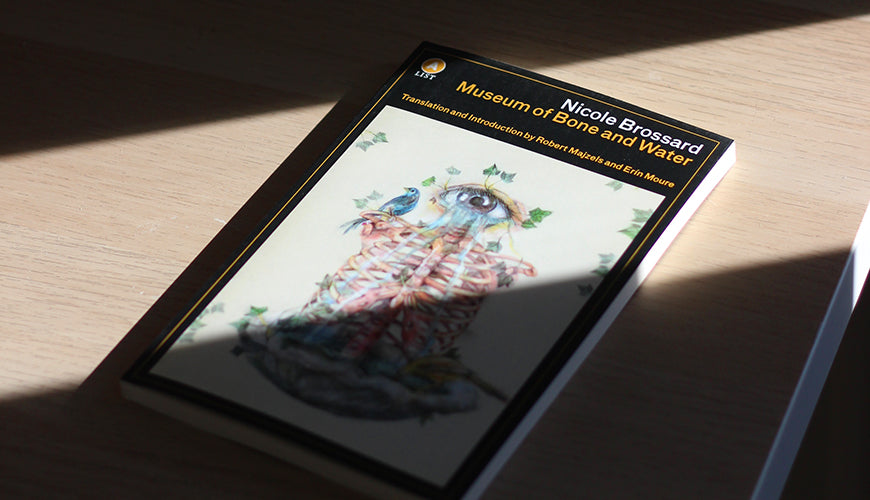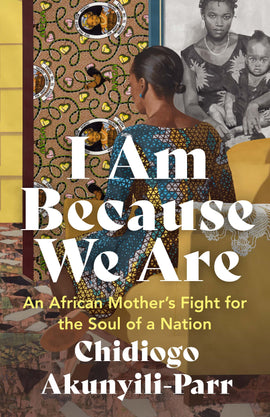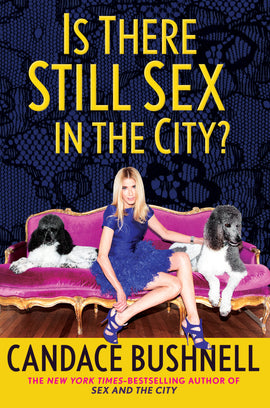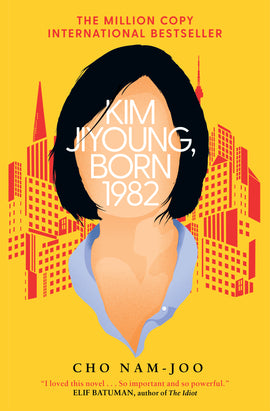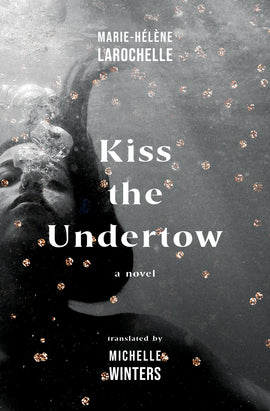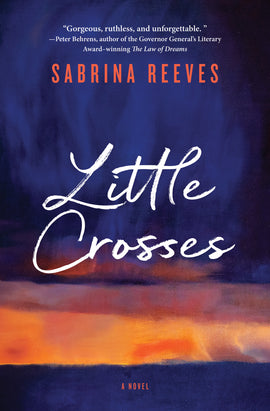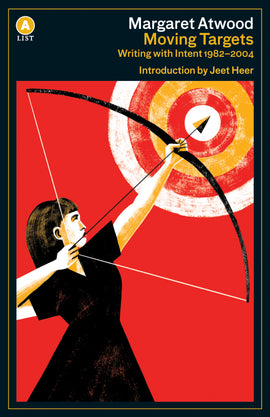Quick View
{"id":6899076628539,"title":"Is There Still Sex in the City?","handle":"is-there-still-sex-in-the-city","description":"\u003cp\u003e\u003cstrong\u003eTwenty years after her sharp, seminal first book \u003ci\u003eSex and the City\u003c\/i\u003e reshaped the landscape of pop culture and dating with its fly-on-the-wall look at the mating rituals of the Manhattan elite, the trailblazing Candace Bushnell delivers a new book on the highs and lows of sex and dating after fifty.\u003c\/strong\u003e\u003c\/p\u003e\u003cp\u003eSet between the Upper East Side of Manhattan and a country enclave known as The Village, \u003ci\u003eIs There Still Sex in the City\u003c\/i\u003e? gathers Bushnell’s signature short, sharp, satirical commentaries on the love and dating habits of middle-aged men and women as they continue to navigate the ever-modernizing world of relationships. Throughout, Bushnell documents twenty-first century dating phenomena, such as the “Unintended Cub Situation” in which a sensible older woman suddenly becomes the love interest of a much younger man, the “Mona Lisa” Treatment — a vaginal restorative surgery often recommended to middle-aged women — and what it’s really like to go on Tinder dates as a fifty-something divorcée. Bushnell also updates one of her most celebrated stories from \u003ci\u003eSex and the City\u003c\/i\u003e, about “Bicycle Boys,” a breed of New York man who is always trying to bring his bike up to women’s apartments. Once an anomaly, Bushnell charts their new ubiquitousness, in addition to where, and how, to do your own man stalking via bicycle (and whether or not it’s worth it).\u003c\/p\u003e","published_at":"2022-06-27T18:12:11-04:00","created_at":"2022-06-27T17:26:08-04:00","vendor":"House of Anansi Press Inc","type":"","tags":["Adult Humor","Anansi International","By (author) Bushnell Candace","Feminist Reads","pub date: 2019-08-06"],"price":1995,"price_min":1995,"price_max":2495,"available":true,"price_varies":true,"compare_at_price":null,"compare_at_price_min":0,"compare_at_price_max":0,"compare_at_price_varies":false,"variants":[{"id":40499146326075,"title":"trade paperback","option1":"trade paperback","option2":null,"option3":null,"sku":"9781487006938","requires_shipping":true,"taxable":true,"featured_image":null,"available":true,"name":"Is There Still Sex in the City? - trade paperback","public_title":"trade paperback","options":["trade paperback"],"price":2495,"weight":310,"compare_at_price":null,"inventory_management":"shopify","barcode":"9781487006938","requires_selling_plan":false,"selling_plan_allocations":[]},{"id":40499147046971,"title":"epub","option1":"epub","option2":null,"option3":null,"sku":"9781487006945","requires_shipping":false,"taxable":true,"featured_image":null,"available":true,"name":"Is There Still Sex in the City? - epub","public_title":"epub","options":["epub"],"price":1995,"weight":0,"compare_at_price":null,"inventory_management":null,"barcode":"9781487006945","requires_selling_plan":false,"selling_plan_allocations":[]},{"id":40499147341883,"title":"mobi","option1":"mobi","option2":null,"option3":null,"sku":"9781487006952","requires_shipping":false,"taxable":true,"featured_image":null,"available":true,"name":"Is There Still Sex in the City? - mobi","public_title":"mobi","options":["mobi"],"price":1995,"weight":0,"compare_at_price":null,"inventory_management":null,"barcode":"9781487006952","requires_selling_plan":false,"selling_plan_allocations":[]}],"images":["\/\/houseofanansi.com\/cdn\/shop\/products\/BNCImageAPI_e183ad81-e3c3-4023-8a59-5bfc1b45a3a5.jpg?v=1656366472"],"featured_image":"\/\/houseofanansi.com\/cdn\/shop\/products\/BNCImageAPI_e183ad81-e3c3-4023-8a59-5bfc1b45a3a5.jpg?v=1656366472","options":["Title"],"media":[{"alt":"A photograph shows a woman with light skin tone and blonde hair sitting on a Victorian-style pink velvet couch with gold legs. She wears a blue dress and blue heels. There are two grey and white poodles on the couch. They sit on either side of her. The background is dark blue with a black lace overlay. Text: Is There Still Sex in the City? Candace Bushnell. The New York Times-Bestselling author of Sex and the City.","id":22284863471675,"position":1,"preview_image":{"aspect_ratio":0.661,"height":2550,"width":1686,"src":"\/\/houseofanansi.com\/cdn\/shop\/products\/BNCImageAPI_e183ad81-e3c3-4023-8a59-5bfc1b45a3a5.jpg?v=1656366472"},"aspect_ratio":0.661,"height":2550,"media_type":"image","src":"\/\/houseofanansi.com\/cdn\/shop\/products\/BNCImageAPI_e183ad81-e3c3-4023-8a59-5bfc1b45a3a5.jpg?v=1656366472","width":1686}],"requires_selling_plan":false,"selling_plan_groups":[],"content":"\u003cp\u003e\u003cstrong\u003eTwenty years after her sharp, seminal first book \u003ci\u003eSex and the City\u003c\/i\u003e reshaped the landscape of pop culture and dating with its fly-on-the-wall look at the mating rituals of the Manhattan elite, the trailblazing Candace Bushnell delivers a new book on the highs and lows of sex and dating after fifty.\u003c\/strong\u003e\u003c\/p\u003e\u003cp\u003eSet between the Upper East Side of Manhattan and a country enclave known as The Village, \u003ci\u003eIs There Still Sex in the City\u003c\/i\u003e? gathers Bushnell’s signature short, sharp, satirical commentaries on the love and dating habits of middle-aged men and women as they continue to navigate the ever-modernizing world of relationships. Throughout, Bushnell documents twenty-first century dating phenomena, such as the “Unintended Cub Situation” in which a sensible older woman suddenly becomes the love interest of a much younger man, the “Mona Lisa” Treatment — a vaginal restorative surgery often recommended to middle-aged women — and what it’s really like to go on Tinder dates as a fifty-something divorcée. Bushnell also updates one of her most celebrated stories from \u003ci\u003eSex and the City\u003c\/i\u003e, about “Bicycle Boys,” a breed of New York man who is always trying to bring his bike up to women’s apartments. Once an anomaly, Bushnell charts their new ubiquitousness, in addition to where, and how, to do your own man stalking via bicycle (and whether or not it’s worth it).\u003c\/p\u003e"}
{"AlsoRecommendedISBN_0":"9781487000639","AlsoRecommendedISBN_3":"9781770893139","AlsoRecommendedISBN_4":"9781770899841","BASICMainSubject":"FIC000000","BASICMainSubjectLiteral":"FICTION\/General","BiographicalNote":"\u003cp\u003e\u003cstrong\u003eCANDACE BUSHNELL\u003c\/strong\u003e is the critically acclaimed, internationally bestselling author of \u003cem\u003eSex and the City\u003c\/em\u003e, \u003cem\u003eLipstick Jungle\u003c\/em\u003e, T\u003cem\u003ehe Carrie Diaries\u003c\/em\u003e, \u003cem\u003eOne Fifth Avenue\u003c\/em\u003e, \u003cem\u003eTrading Up\u003c\/em\u003e, \u003cem\u003eFour Blondes\u003c\/em\u003e, \u003cem\u003eSummer and the City\u003c\/em\u003e, and \u003cem\u003eKilling Monica\u003c\/em\u003e. \u003cem\u003eSex and the City\u003c\/em\u003e, published in 1996, was the basis for the HBO hit series and two subsequent blockbuster movies. Both \u003cem\u003eLipstick Jungle\u003c\/em\u003e and \u003cem\u003eThe Carrie Diaries\u003c\/em\u003e became popular television series.\u003c\/p\u003e","BISACSubjectLiteral_0":"FICTION \/ General","BISACSubjectLiteral_1":"FICTION \/ Biographical","BISACSubjectLiteral_2":"FICTION \/ Friendship","BISACSubject_0":"FIC000000","BISACSubject_1":"FIC041000","BISACSubject_2":"FIC071000","ContributorBio_0":"\u003cp\u003e\u003cstrong\u003eCANDACE BUSHNELL\u003c\/strong\u003e is the critically acclaimed, internationally bestselling author of \u003cem\u003eSex and the City\u003c\/em\u003e, \u003cem\u003eLipstick Jungle\u003c\/em\u003e, T\u003cem\u003ehe Carrie Diaries\u003c\/em\u003e, \u003cem\u003eOne Fifth Avenue\u003c\/em\u003e, \u003cem\u003eTrading Up\u003c\/em\u003e, \u003cem\u003eFour Blondes\u003c\/em\u003e, \u003cem\u003eSummer and the City\u003c\/em\u003e, and \u003cem\u003eKilling Monica\u003c\/em\u003e. \u003cem\u003eSex and the City\u003c\/em\u003e, published in 1996, was the basis for the HBO hit series and two subsequent blockbuster movies. Both \u003cem\u003eLipstick Jungle\u003c\/em\u003e and \u003cem\u003eThe Carrie Diaries\u003c\/em\u003e became popular television series.\u003c\/p\u003e\n","ContributorRole_0":"By (author)","Contributor_0":"Bushnell, Candace","Description":"\u003cp\u003e\u003cstrong\u003eTwenty years after her sharp, seminal first book \u003ci\u003eSex and the City\u003c\/i\u003e reshaped the landscape of pop culture and dating with its fly-on-the-wall look at the mating rituals of the Manhattan elite, the trailblazing Candace Bushnell delivers a new book on the highs and lows of sex and dating after fifty.\u003c\/strong\u003e\u003c\/p\u003e\u003cp\u003eSet between the Upper East Side of Manhattan and a country enclave known as The Village, \u003ci\u003eIs There Still Sex in the City\u003c\/i\u003e? gathers Bushnell’s signature short, sharp, satirical commentaries on the love and dating habits of middle-aged men and women as they continue to navigate the ever-modernizing world of relationships. Throughout, Bushnell documents twenty-first century dating phenomena, such as the “Unintended Cub Situation” in which a sensible older woman suddenly becomes the love interest of a much younger man, the “Mona Lisa” Treatment — a vaginal restorative surgery often recommended to middle-aged women — and what it’s really like to go on Tinder dates as a fifty-something divorcée. Bushnell also updates one of her most celebrated stories from \u003ci\u003eSex and the City\u003c\/i\u003e, about “Bicycle Boys,” a breed of New York man who is always trying to bring his bike up to women’s apartments. Once an anomaly, Bushnell charts their new ubiquitousness, in addition to where, and how, to do your own man stalking via bicycle (and whether or not it’s worth it).\u003c\/p\u003e","EAN":"9781487006952","excerpt_0":"https:\/\/biblioshare.org\/BNCservices\/BNCServices.asmx\/Samples?token=fcf85c1c1b298e99\u0026amp;ean=9781487006952\u0026amp;SAN=\u0026amp;Perspective=excerpt\u0026amp;FileNumber=0","Height":"8.25","HeightCode":"in","Imprint":"Anansi International","MetaKeywords":"hbo max;sex and the city reboot;social anthropology;sarah jessica parker;aging;wry observations;archetypes;cubbing;bicycle boys;modern singledom;pop culture;sex and dating;disappointment;regret;self-acceptance;fiftysomething;women writers;The Kiss Quotient;Helen Hoang;The Vacationers;Emma Staub;Wher","NumberOfPages":"272","OtherText_Description_for_R_0":"\u003cp\u003eSix months into my retreat, I got a call from Tina Brown. She had a story idea for me. Now that the appropriate time had passed since my divorce, I should throw myself back into the dating world and write about what it was like to be dating over fifty. I could do internet dating. I could hire a matchmaker…\u003c\/p\u003e\u003cp\u003eI cut her off.\u003c\/p\u003e\u003cp\u003eI don’t think so.\u003c\/p\u003e\u003cp\u003eI wasn’t ready to start dating. But most of all, I didn’t want to. I’d been in relationships for nearly thirty-five years. I’d even experienced the full relationship cycle — fall in love, get married, and get divorced.\u003c\/p\u003e\u003cp\u003eAnd now I was supposed to do it all over again? Was engaging in the relationship cycle the only thing I could do with my life? I thought about that good old definition of crazy: Doing the same thing over and over again and hoping for a different result.\u003c\/p\u003e\u003cp\u003eIt was time to put an end to the cycle. And so I decided for the first time in thirty-four years, to be man-free.\u003c\/p\u003e\u003cp\u003eThis also meant being sex-free. At this point in my life, I’m not a casual sex person.\u003c\/p\u003e\u003cp\u003eI didn’t talk about it, of course. The topic of sex, once the source of so much amusement, embarrassment, fear and joy, rarely came up. My single friends had been single forever and not dating and therefore not getting any, while my married friends were married and dealing with kids and also — I imagined — not getting any.\u003c\/p\u003e","OtherText_Review_0":"\u003cp\u003e“Perhaps no one has better excavated our kinky underpinnings than Candace Bushnell, author of the original ‘Sex and the City’ columns and progenitor of the show that made Manolo a household name. Fifteen years after Carrie Bradshaw sighed her last ‘I couldn't help but wonder,’ Bushnell is back with Is There Still Sex in the City? The protagonist, Candace, is a recently divorced writer who trades her Manhattan life for a cottage in the Hamptons . . . [Is There Still Sex in the City? is] brimming with the snappy rhetorical questions and taxonomic acronyms that became Bushnell's signature back in the stiletto days . . . While Carrie was a bright-eyed anthropologist, Candace and her friends are survivalists; even beyond the City, it's a jungle out there.” — \u003cstrong\u003e\u003cem\u003eVogue\u003c\/em\u003e\u003c\/strong\u003e\u003c\/p\u003e","OtherText_Review_0_Src":"Vogue","OtherText_Review_1":"\u003cp\u003e“Sometimes it can be fun to wonder what became of our fictional heroines . . . what of Carrie Bradshaw? After she bagged her Mr. Big, did she list her $40,000 shoe collection on eBay, move to the suburbs, have a bunch of kids, and grow old gracefully? Or did Carrie find herself in her fifties child-free, single again, and wondering how to get back in the game, only to have her gynecologist recommend a Mona Lisa laser treatment because ‘your vagina is not flexible enough’? Ugh. Such are the humiliations awaiting the female in middle age. That you-gotta-laugh-or-you-cry place is where Candace Bushnell, with her usual sparkling candor, begins Is There Still Sex in the City?.” — \u003cstrong\u003e\u003cem\u003eNew York Times\u003c\/em\u003e\u003c\/strong\u003e\u003c\/p\u003e","OtherText_Review_1_Src":"New York Times","OtherText_Review_2":"\u003cp\u003e“The book captures the buoyancy of the writer’s brand . . . As with the show, there’s a lot to relish. Bushnell’s portrayals of the women in her circle somehow feel both forgiving and clinical, with an anthropologist’s matter-of-factness . . . Bushnell wrestles smartly with the theme of aging, with how being a ‘fiftysomething’ woman is different from being a ‘thirtysomething’ woman . . . This Bushnell writes most gracefully about topics that are not sex and dating . . . The city is big, Bushnell implies, but not endless. The sex never left it. But was sex ever really the point?” — \u003cstrong\u003e\u003cem\u003eNew Yorker\u003c\/em\u003e\u003c\/strong\u003e\u003c\/p\u003e","OtherText_Review_2_Src":"New Yorker","OtherText_Review_3":"\u003cp\u003e“Bushnell’s voice is as knowing and sharp as ever . . . As with SATC’s ‘toxic bachelors’ and ‘modelizers,’ there’s a new taxonomy: ‘Cubbing,’ the pursuit of older women by younger men; or ‘MAM,’ for middle-aged madness, a late-onset midlife crisis for women. She also updates a chapter on ‘bicycle boys’ — then, the charmingly rumpled literary types on vintage bikes, now wealthy guys in Lycra.” — \u003cstrong\u003e\u003cem\u003eWashington Post\u003c\/em\u003e\u003c\/strong\u003e\u003c\/p\u003e","OtherText_Review_3_Src":"Washington Post","OtherText_Review_4":"\u003cp\u003e“While [Bushnell] doesn’t bring back Carrie, Miranda, Charlotte, or Samantha, it feels a bit like we’re at brunch with middle-aged versions of those archetypes, and they’re still talking about love and sex because, well, of course. The book, part memoir, part fiction, is a guide to the Ides of Fifty . . . Much like in the original SATC, Bushnell and her friends experience every romantic possibility so we don’t have to . . . Bushnell also touches on poignant aspects of what she calls ‘middle-aged madness’: the death of a parent, the isolation of divorce, the ache of realizing that even the most gorgeous among us will eventually become invisible.” — \u003cstrong\u003e\u003cem\u003eTime Magazine\u003c\/em\u003e\u003c\/strong\u003e\u003c\/p\u003e","OtherText_Review_4_Src":"Time Magazine","OtherText_Review_5":"\u003cp\u003e“As she did in her bestselling Sex in the City, Bushnell examines her own and her friends’ experiences with dry wit, delivering sharp social observations about the trials and piquant pleasures of looking for love at a certain age.” — \u003cstrong\u003e\u003cem\u003ePeople Magazine\u003c\/em\u003e\u003c\/strong\u003e\u003c\/p\u003e","OtherText_Review_5_Src":"People Magazine","OtherText_Review_6":"\u003cp\u003e“It’s hard out there for a cougar. But for Sex and the City author Candace Bushnell, it’s exactly the age when women need her the most. Her latest book addresses . . . women in their fifties and sixties who suddenly find themselves dating again. As with its predecessor, there is no shortage of catchphrase-worthy sentiments.” — \u003cstrong\u003e\u003cem\u003eEntertainment Weekly\u003c\/em\u003e\u003c\/strong\u003e\u003c\/p\u003e","OtherText_Review_6_Src":"Entertainment Weekly","OtherText_Review_7":"\u003cp\u003e“What comes after cosmos and toxic bachelors? Fuelled by chilled rosé, Sex and the City scribe Candace Bushnell is masterfully decoding a new era of single life.” — \u003cstrong\u003e\u003cem\u003eUSA Today\u003c\/em\u003e\u003c\/strong\u003e\u003c\/p\u003e","OtherText_Review_7_Src":"USA Today","OtherText_Review_8":"\u003cp\u003e“Bittersweet, amusing, and well observed.” — \u003cstrong\u003e\u003cem\u003eGuardian\u003c\/em\u003e\u003c\/strong\u003e\u003c\/p\u003e","OtherText_Review_8_Src":"Guardian","OtherText_ShortDescription_0":"Candace Bushnell, author of Sex and the City, delivers a highly entertaining book on the highs and lows of sex and dating after fifty.","ProductFormDescription":"mobi","PublicationDate":"2019-08-06","Publisher":"House of Anansi Press Inc","ShortDescription":"Candace Bushnell, author of Sex and the City, delivers a highly entertaining book on the highs and lows of sex and dating after fifty.","Width":"5.5","WidthCode":"in"}
